Coke of Longford (1641)

- Sir Edward Coke, 1st Baronet (died 1669)
- Sir Robert Coke, 2nd Baronet (1645–1688)
- Sir Edward Coke, 3rd Baronet (1648–1727)
The Coke baronetcy of Longford, in the County of Derby was created in the Baronetage of England on 30 December 1641 for Edward Coke.
He was the grandson of Sir Edward Coke, Lord Chief Justice. His father Clement (died 1629), youngest son of Sir Edward, acquired by marriage the Longford Hall estate in Derbyshire. Coke served as high sheriff of Derbyshire in 1646. His son, the 2nd Baronet, was Member of Parliament for Derbyshire in 1685.
The baronetcy was extinct on the death of the 3rd Baronet in 1727. The Longford estate passed into the ownership of the senior branch of the Coke family of Holkham Hall, Norfolk, represented by the Earl of Leicester.

| |||||||||||||||||||||||||||||||||||||||||||||||||||||||||||||||||||||||||||||||||||||||||||||||||||||||||||||||||||||||||||||||||||||||||||||||||||||||||||||||||||||||||||||||||||||||||||||||||||||||||||||||||||||||||||||||||||||||||||||||||||||||||||||||||||||||||||||||||||||||||||||||||||||||||||||||||||||||||||||||||||||||||||||||||||||||||||||||||||||||||||||||||||||||||||||||||||||||||||||||||||||||||||||||||||||||||||||||||||||||||||||||||||||||||||||||||||||||||||||||||||||||||||||||||||||||||||||||||||||||||||||||||||||||||||||||||||||||||||||||||||||||||||||||||||||||||||||||||||||||||||||||||||||||||||||||||||||||||||||||||||||||||||||||||||||||||||||||||||||||||||||||||||||||||||||||||||||||||||||||||||||||||||||||||||||||||||||||||||||||||||||||||||||||||||||||||||||||||||||||||||||||||||||||||||||||||||||||||||||||||||||||||||||||||||||||||||||||||||||||||||||||||||||||||||||||||||||||||||||||||||||||||||||||||||||||||||||||||||||||||||||||||||||||||||||||||||||||||||||||

Three baronetcies have been created in the Baronetage of England for members of the Littleton or Lyttelton family. All three lines are descended from Thomas de Littleton, a noted 15th-century jurist. Despite differences in the spelling of the title, the names of all three lines were spelt in many varied ways in the early modern period, without distinction between the different branches of the family. This can be confusing, as the range of forenames in use was very limited.
There have been three baronetcies created for members of the Mosley family, one in the Baronetage of England and two in the Baronetage of Great Britain. Only one creation is extant. Since 1980, the title has been held jointly with Baron Ravensdale in the Peerage of the United Kingdom.
The Kniveton Baronetcy, of Mercaston in the County of Derby, was a title in the Baronetage of England. It was created by King James I on 29 June 1611 for William Kniveton of Mercaston Hall, Muggington, Derbyshire. The family originated in the village of Kniveton,, from where their name derived. Branches of the family later had seats at Bradley and by virtue of the 15th century marriage of Nicholas Kniveton, at Mercaston, near Muggington, Derby

There have been two Charlton Baronetcies:-
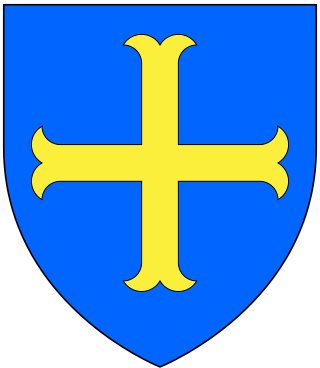
There have been three baronetcies created for descendants of the ancient Norman family of Molyneux who were granted extensive estates in Lancashire after the Norman Conquest.
There have been two baronetcies created for people named Cole, one in the Baronetage of England and one in the Baronetage of Ireland.
There have been two baronetcies created for the Pye family. Both are now extinct.

There have been five baronetcies created for members of the old established family of Peyton of Peyton Hall in the parish of Boxford in Suffolk, all of whom were descended from Sir Robert Peyton of Isleham in Cambridgeshire, grandson and heir of Thomas Peyton (1418–1484) of Isleham, twice Sheriff of Cambridgeshire and Huntingdonshire, in 1443 and 1453. All the baronetcies are extinct.
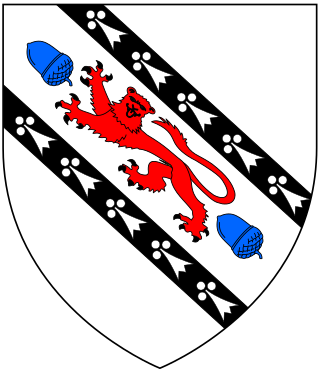
The Rodes Baronetcy, of Barlborough in the County of Derby, was a title in the Baronetage of England. It was created on 14 August 1641 for Francis Rodes, of Barlborough Hall, near Chesterfield, Derbyshire. The early family of Rodes was seated in Nottinghamshire. A William Rodes acquired an estate in Derbyshire by marriage. Sir Francis Rodes built Barlborough Hall in 1583–4. The first Baronet was his grandson. The title became extinct on the death of the fourth Baronet in 1743, when the estates passed to his sister's heirs, the Heathcotes and Heathcote-Rodes families.
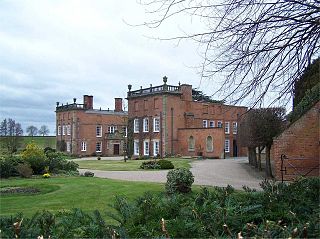
Longford Hall is a 16th-century country house at Longford in the Dales district of Derbyshire, England. It is a Grade II* listed building.
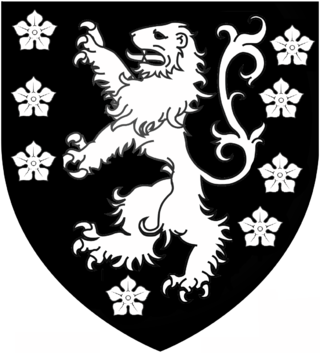
Two unrelated baronetcies have been created in the surname of Clifton.
The Vernon family was a wealthy, prolific and widespread English family with 11th-century origins in Vernon, Normandy, France. Their extant titles include Baron Vernon and Vernon baronets of Shotwick Park.
There have been two baronetcies created in the Baronetage of England for members of the Colepeper family of Kent and Sussex. Both are extinct.
The Blackwell Baronetcy, of Sprowston in the County of Norfolk, was a title in the Baronetage of Great Britain.
There have been two baronetcies- both extinct- granted to the Willises of Fen Ditton, both in the Baronetage of England.
Sir John Gell, 2nd Baronet was an English politician who sat in the House of Commons at various times between 1654 and 1689.

The Lyttelton family is a British aristocratic family. Over time, several members of the Lyttelton family were made knights, baronets and peers. Hereditary titles held by the Lyttelton family include the viscountcies of Cobham and Chandos, as well as the Lyttelton barony and Lyttelton baronetcy. Several other members of the family have also risen to prominence, particularly in the field of cricket.
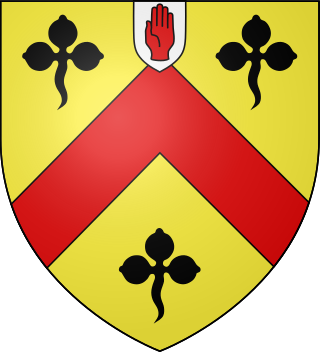
The Abdy baronetcy, of Albyns, in the County of Essex, was created in the Baronetage of England on 9 June 1660 for Robert Abdy. It became extinct on the death in 1759 of the 4th baronet.
Sir Richard Newdigate, 3rd Baronet was an English landowner.
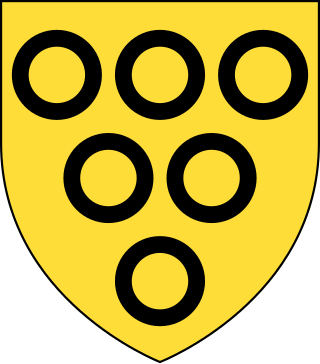
The Lowther baronetcy, of Marske in the County of York, was created in the Baronetage of England on 15 June 1697 for the 21-year-old William Lowther, subsequently Member of Parliament for Lancaster. His father was Anthony Lowther. He was the grandson of the London merchant Robert Lowther, brother of Sir John Lowther of Lowther Hall, the father of Sir John Lowther, 1st Baronet, of Lowther.